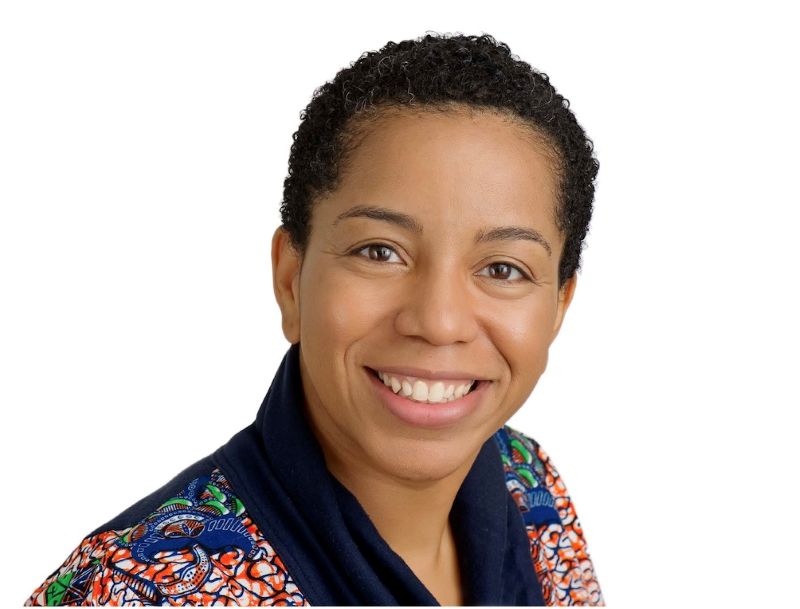The work of Professor Thema Monroe-White provides the strongest evidence yet that a scientist’s background influences the research they pursue and the technology they build.

We often hear that diversity of minds boosts scientific progress. But can this be proven? Thema Monroe-White, Professor of AI and Innovation Policy at George Mason University, is finding the answers.
Her work uses big data to uncover systemic bias. Her paper Intersectional inequalities in science provides the most comprehensive evidence yet that a scientist’s background influences the research questions they pursue. Her forthcoming paper on large language models (LLMs) shows the alarming scale at which they reinforce harmful stereotypes, reminding us why diversity in who designs our tech matters.
Professor Monroe-White’s own work serves as a striking example of what we would miss if more voices like hers—those that have been historically marginalised in science—are not heard.
A winding path to professorship
Monroe-White's journey to becoming a tenured professor at George Mason University is testament to her resilience. She began her academic career studying psychology at Howard, a historically Black university in Washington, D.C. As she moved through her studies, she became increasingly interested in the systemic factors shaping our psychology, which led her to pursue a PhD in science policy at the Georgia Institute of Technology.
Put off by the hierarchical structure of academia, Monroe-White went on to work in industry. However, upon the birth of her fourth child, she returned to academia, teaching data science at a liberal arts college near Atlanta. Her success in securing multiple prestigious grants led her back to Washington, D.C. where she joined George Mason University in 2024.
On her journey to this stage in her career, she says, “Of course I had doubts, of course I had insecurities…, of course I was doubted along the way. I was the only Black woman tenure-track faculty at that institution.” Nevertheless, Monroe-White’s extraordinary drive meant she made it against all the odds—but many scientists from marginalised backgrounds do not.
Science is a human enterprise
Monroe-White’s work highlights how the composition of the scientific community shapes the direction of research. In her ‘Intersectional inequalities in science’ paper, she and her co-authors conclude that if the diversity of scientists reflected that of the wider population, “there would have been 29% more articles in public health, 26% more on gender-based violence, 25% more in gynaecology and in gerontology, 20% more on immigrants and minorities, and 18% more on mental health. […] A different body of knowledge would be produced...[one that] would more closely reflect the spectrum of topics relevant across society.”
As an example of the real-world impact of this, the authors note how the historical paucity of medical research on female subjects has led to poorer health outcomes for all women. In general, more research into a health or social issue can translate directly into improved quality of life for people.
Monroe-White’s own work is a case in point. It shows us how science can be used to uncover and fight injustice. Diversifying the scientific workforce doesn’t just benefit the individuals who get access to better jobs; it can change the direction of science itself, to benefit us all.
A battle for the mind
Monroe-White becomes animated discussing her forthcoming paper on LLMs. As far as she is aware, this work is “the first large-scale study of algorithmic bias from [LLMs].”
The study shows the astonishing scale at which the LLMs built by western-centric Big Tech amplify the historical discrimination within western societies. “The language that's being reproduced… is one of a very narrow vantage point that excludes the majority of the world's perspectives. I know this because… I can actually quantify it.”
A frequently proposed use case of LLMs in education is to generate short narratives to be used as examples or discussion prompts. When Monroe-White and colleagues fed LLMs with open-ended prompts to generate such narratives, they didn’t just find a lack of diversity in the featured characters; they found that characters coded as belonging to a minoritised group, when present, were relegated to subordinate roles, with stereotypes often inserted into the story. In one representative example, when prompted to generate a story about an American software developer mentoring a new employee, the developer is named John, and the new employee is Priya, who grew up in a small village in India and “had always dreamed of working in the US”.
The danger of this biased output is that it’s often “subtle enough to be convincing,” Monroe-White says. That is what these models are trained to do: sound convincing even when relaying false or biased output.
This is especially dangerous when the people exposed to the output are impressionable children. “It's going to have an impact on your underlying psyche,” says Monroe-White. “If we want to keep reinforcing the kinds of problems that we have in this world, let [LLMs] have access to your children's minds.”
For this reason, Monroe-White sees the fight against Big Tech’s hold on society as “a battle for the mind.”
“My activism is through my research”
Just as Monroe-White was settling into her new job at George Mason, the political tide changed. “Two of my grants were administratively terminated under the Trump administration in May 2025”, she says.
When I ask her how she feels about recent events, with funding being pulled from equity-related research and western governments being pulled deeper into the pockets of unregulated Big Tech, she says: “This is why I love my job, because I get to fight it through research. … It's slower, but when it hits, it hits.”
As tenured faculty, Monroe-White feels she has at least some degree of protection to be able to carry on her work. She realised a long time ago that, due to her caring responsibilities, she couldn’t be out on the streets with her activism. Therefore, she states, “My activism is through my research.”

